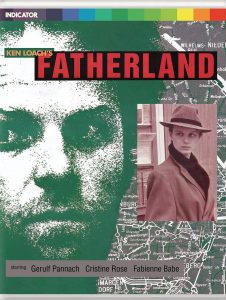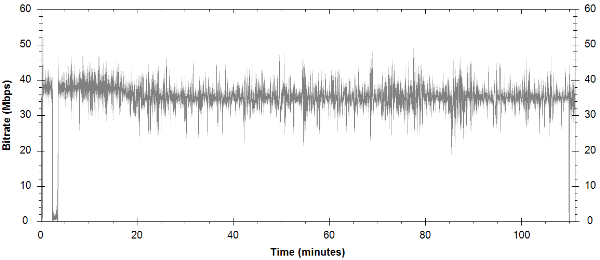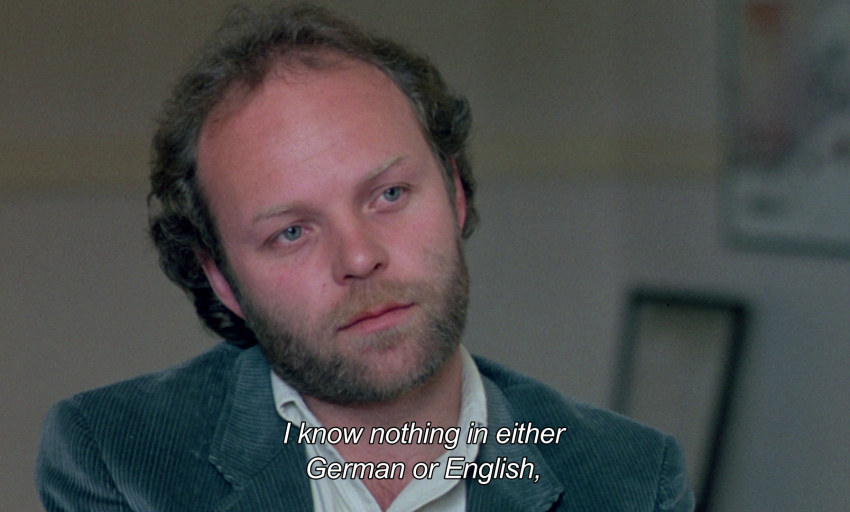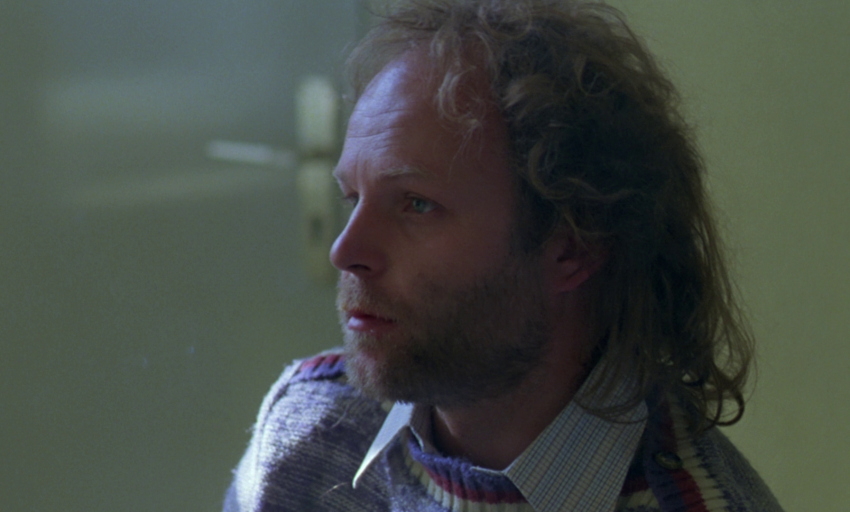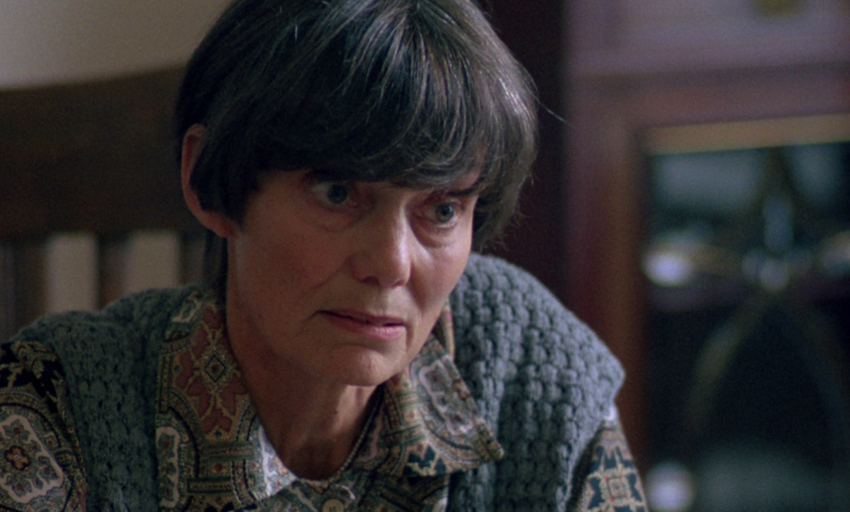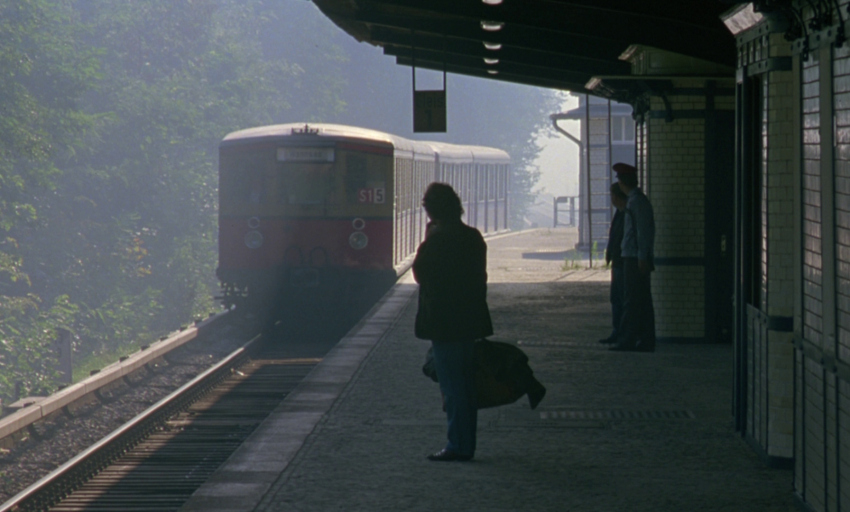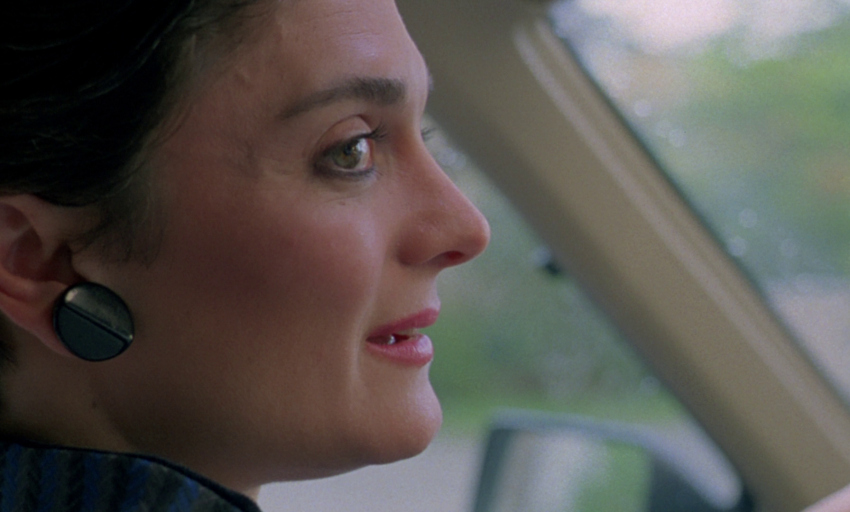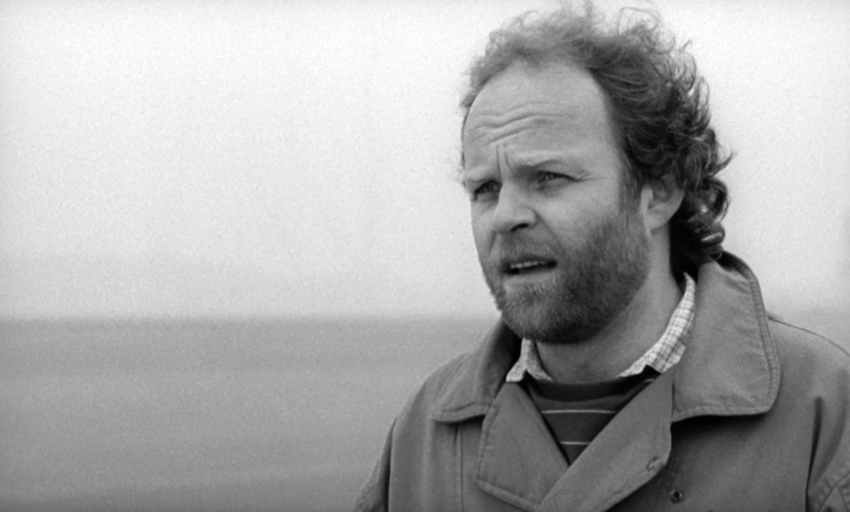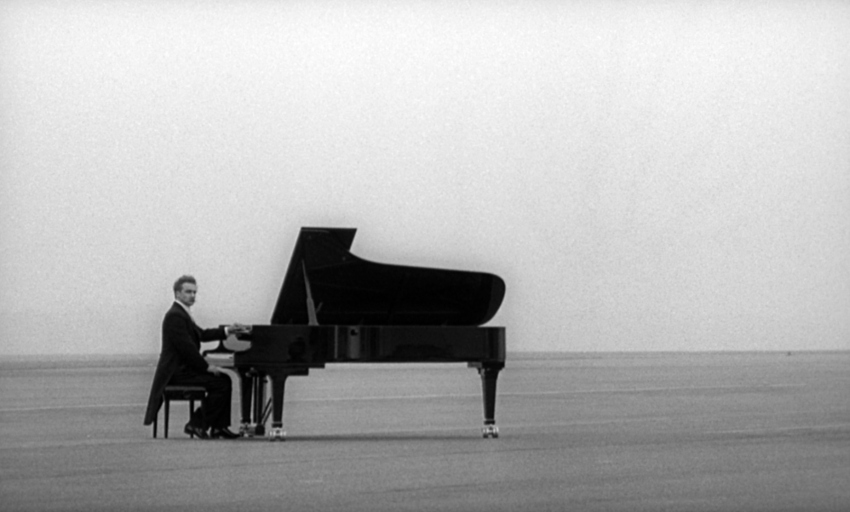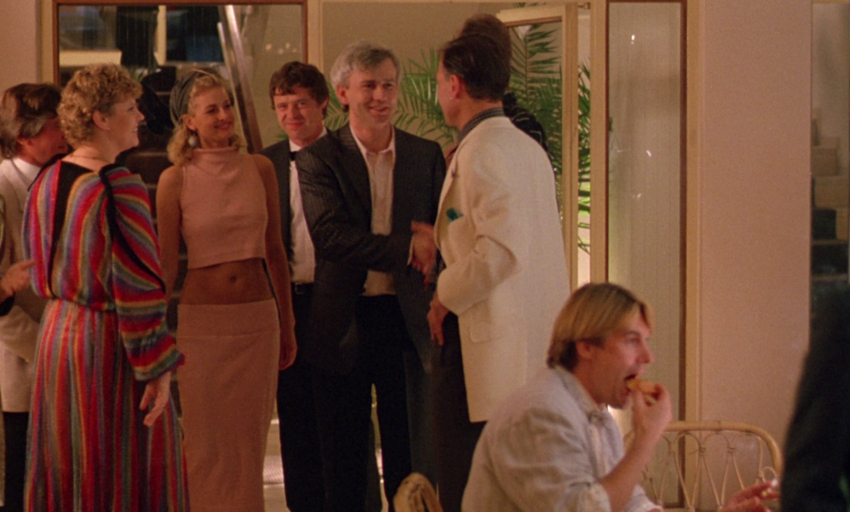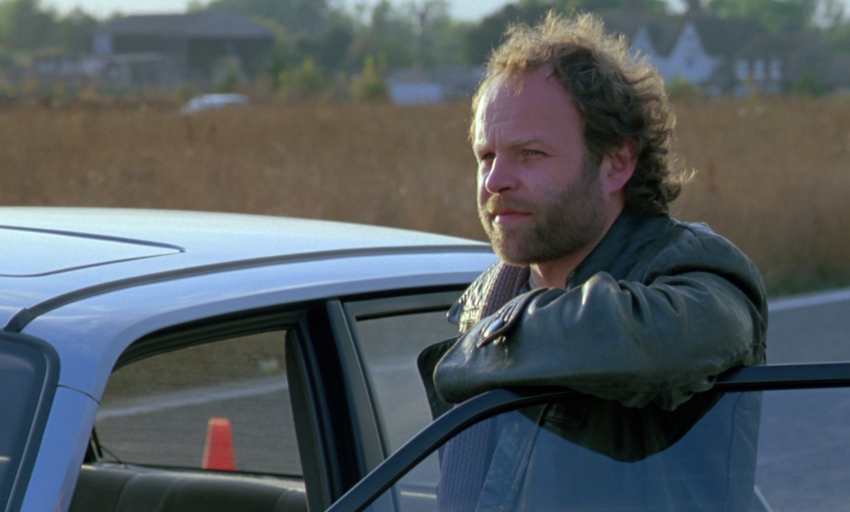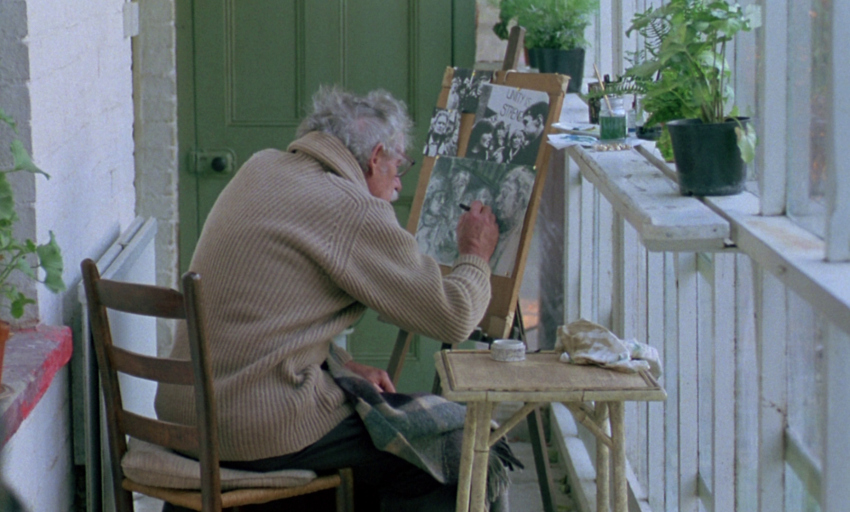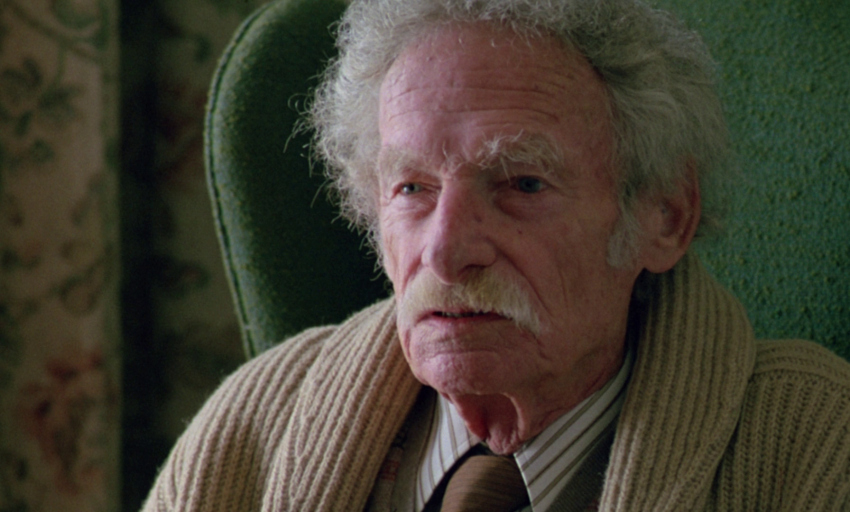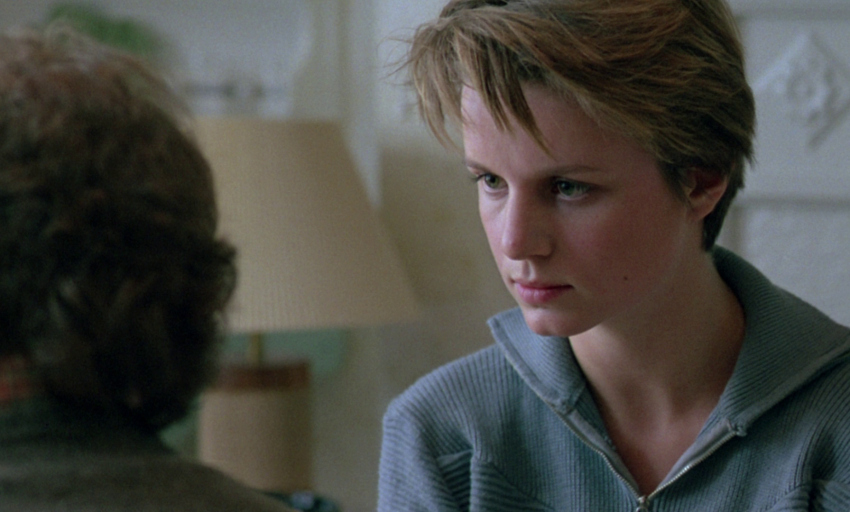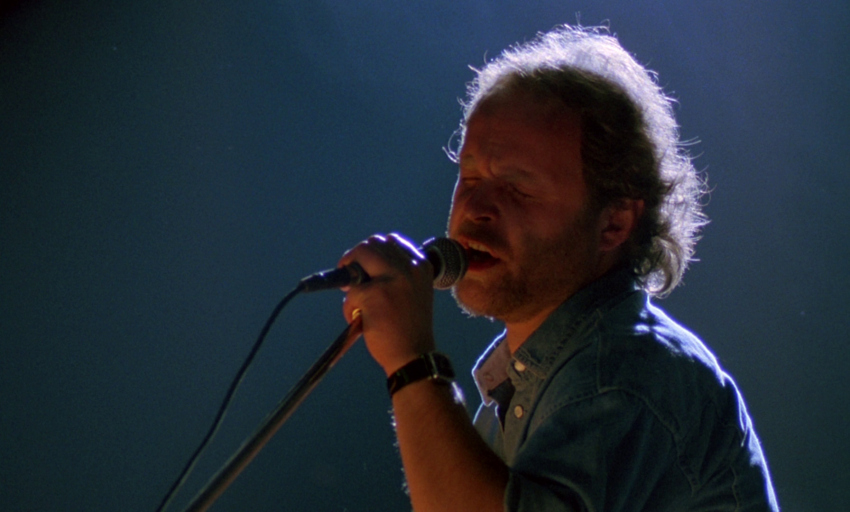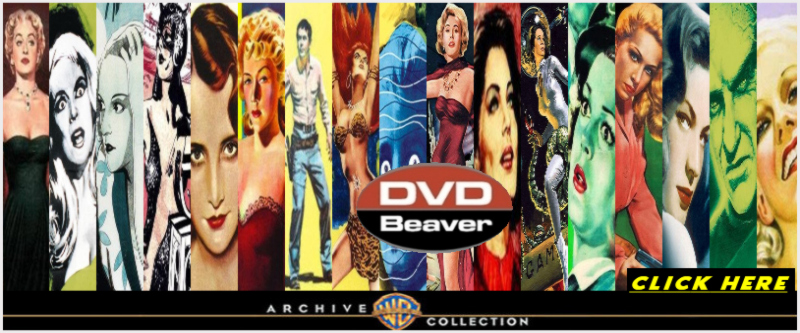|
Firstly, a massive thank you to our Patreon supporters. Your generosity touches me deeply. These supporters have become the single biggest contributing factor to the survival of DVDBeaver. Your assistance has become essential.
What do Patrons receive, that you don't?
1)
Our
weekly
Newsletter
sent to your Inbox every
Monday morning!
Please consider keeping us in existence with a couple of dollars or more each month (your pocket change!) so we can continue to do our best in giving you timely, thorough reviews, calendar updates and detailed comparisons. Thank you very much. |
![]()
![]()

![]()
![]()
|
Search DVDBeaver |
S E A R C H D V D B e a v e r |
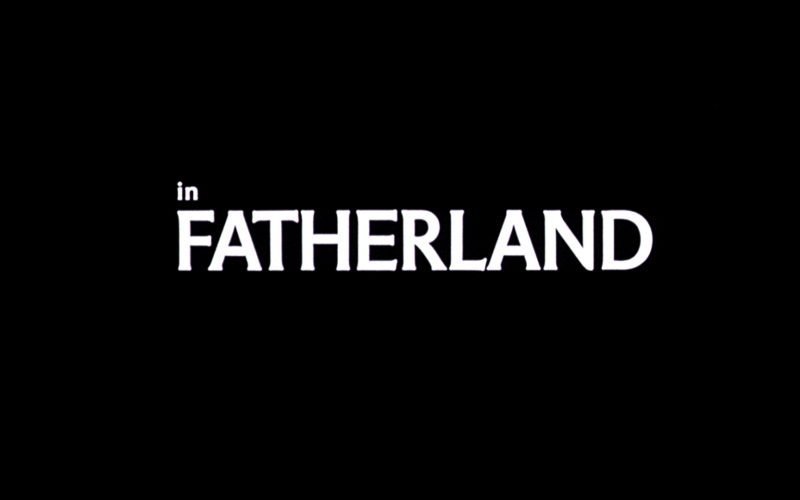
(aka "Singing the Blues in Red")
Directed by Ken Loach (as Kenneth Loach)
UK | West
Germany | France 1986
|
Ken Loach collaborated with playwright Trevor Griffiths (Comedians) for this underseen political drama about an East German protest singer (played by Gerulf Pannach) who emigrates to the West when he falls foul of the authorities. He arrives to much interest from the media – and a potentially lucrative record contract – but wishes only to be able to perform his songs, and to find his father, another exile, who had left his home country during the 1953 East German uprising. *** An intriguing departure for Loach, scripted by Trevor Griffiths, this concerns the voluntary exile of an East German Liedermacher (a kind of radical singer/songwriter) to West Berlin, where his worst fears are confirmed: he has swapped intimidation and censorship for the kind of 'repressive tolerance' that only American record executives and progressive GDR capitalists can convey in all its seductive horror. So far, so good. Superbly composed and cleverly paced, this story of one man's unillusioned exile gives way to a second half in which a thriller-style subplot concerning the singer's vanished father (tracked down to England) takes over, but fails to match the tension and interest of what has gone before. A flawed but always stimulating and intelligent film, with fine performances from Pannach (debuting as the exile) and Steiner (as his father). Excerpt from TimeOut located HERE |
Posters
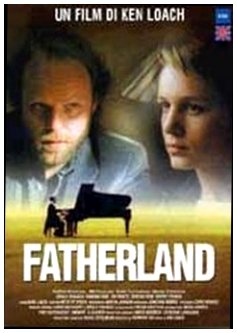 |
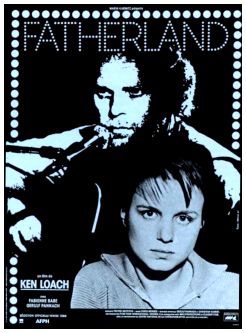 |
Theatrical Release: September 1st, 1986 (Venice Film Festival)
Reviews More Reviews DVD Reviews
Review: Indicator - Region FREE - Blu-ray
| Box Cover |
|
CLICK to order from: Or buy directly from Indicator: |
| Distribution | Indicator - Region FREE - Blu-ray | |
| Runtime | 1:51:11.456 | |
| Video |
1.66 :1 1080P Dual-layered Blu-rayDisc Size: 49,041,214,938 bytesFeature: 32,609,050,176 bytes Video Bitrate: 34.99 MbpsCodec: MPEG-4 AVC Video |
|
|
NOTE: The Vertical axis represents the bits transferred per second. The Horizontal is the time in minutes. |
||
| Bitrate Blu-ray: |
|
|
| Audio |
LPCM Audio English 1152 kbps 1.0 / 48 kHz / 1152 kbps / 24-bit |
|
| Subtitles | English (SDH), English, None | |
| Features |
Release Information: Studio: Indicator
1.66 :1 1080P Dual-layered Blu-rayDisc Size: 49,041,214,938 bytesFeature: 32,609,050,176 bytes Video Bitrate: 34.99 MbpsCodec: MPEG-4 AVC Video
Edition Details: • Language Barriers (2021, 6:19): editor Jonathan Morris discusses his first feature-film collaboration with Ken Loach• Talk About Work (1971, 15:58): Loach’s documentary on youth employment, made for the Central Office of Information and photographed by Chris Menges • Right to Work March (1972, 42:13): campaign film documenting a five-week protest march from Glasgow to London that saw the participation of a number of cultural figures, including Loach and other filmmakers • Trailer (1:15) • Image gallery: publicity and promotional material • Original shooting script Limited edition exclusive 36-page booklet with a new essay by Frank Collins, an archival interview with Ken Loach, an extract from Loach on Loach, an overview of contemporary critical responses, new writing on the documentary films, and film credits UK premiere on Blu-ray Limited edition of 3,000 copies
Transparent Blu-ray Case Chapters 12 |
|
| Comments: |
NOTE:
The below
Blu-ray
captures were taken directly from the
Blu-ray
disc.
On their
Blu-ray,
Indicator use a linear PCM mono track (24-bit) in the
original German and English languages (with occasional French mixed in).
There isn't much aggression - some train noise etc. but mostly the music
is notable. The score is credited to Béla Bartók (Sonata for Two
Pianos and Percussion and Mikrokosmos), Benjamin Britten (Cello
Suite No. 2 in D Major, Op. 80), Christian Kunert and Gerulf Pannach.
There are also pieces by Henry Purcell (Sonata for Two Treble
Recorders) as well as Randy Newman performing his own Guilty. Indicator offer optional English
or English (SDH) subtitles on
their Region FREE
Blu-ray.
The Indicator
Blu-ray
I wasn't crazy about Loach's |
Menus / Extras
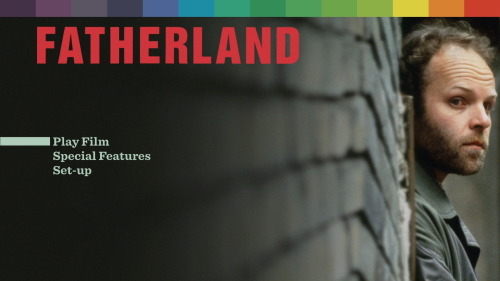 |
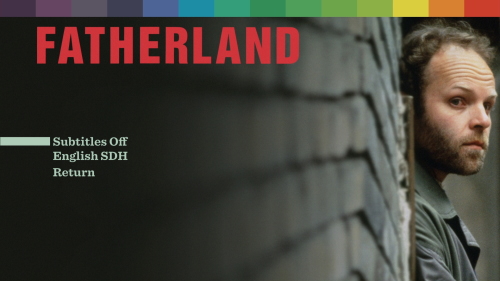 |
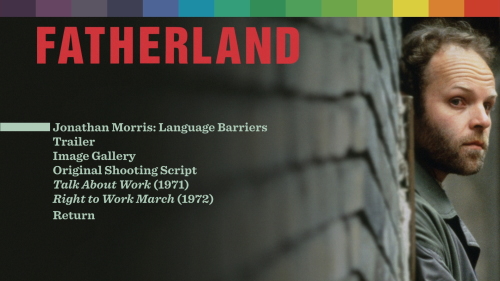 |
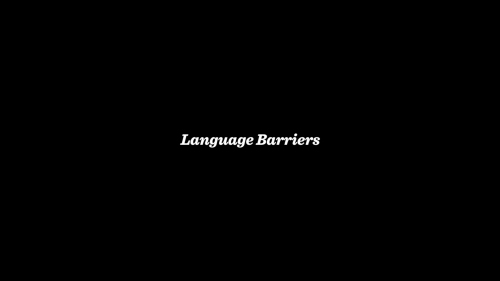 |
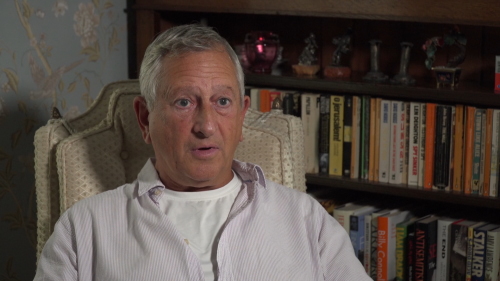 |
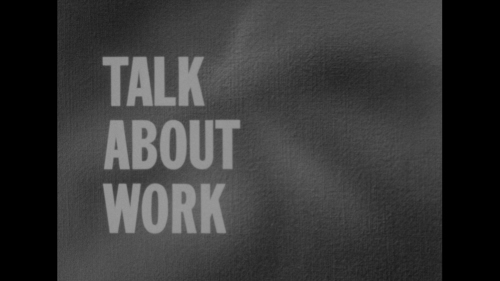 |
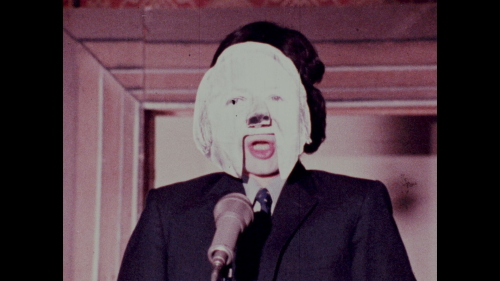 |
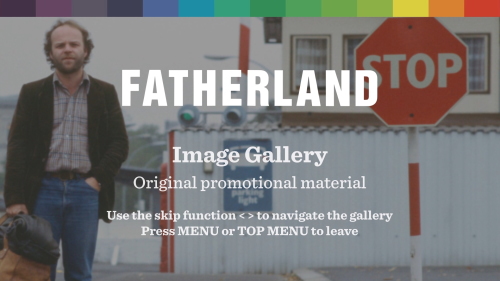 |
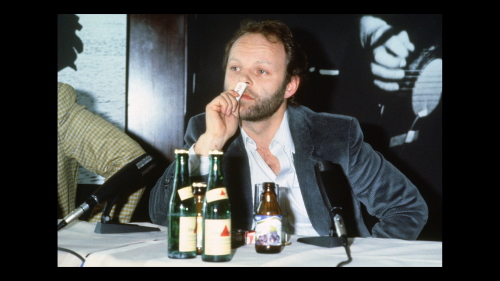 |
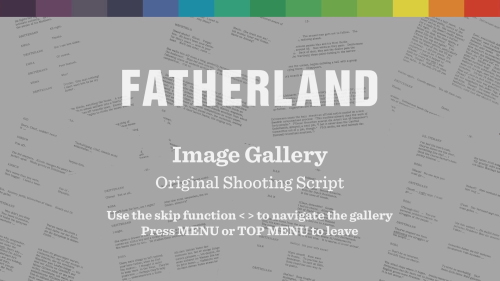 |
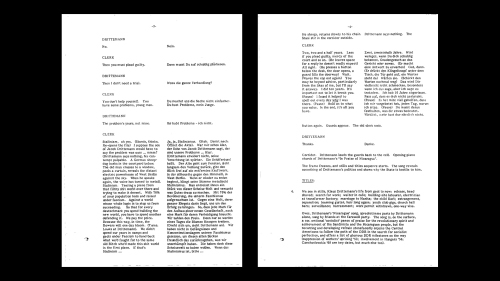 |
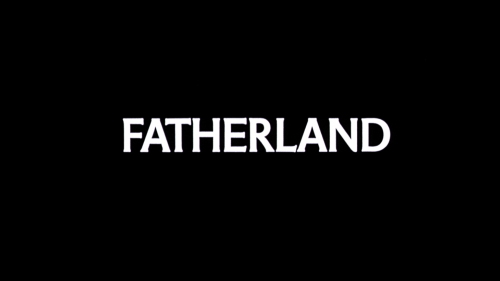 |
CLICK EACH BLU-RAY CAPTURE TO SEE ALL IMAGES IN FULL 1920X1080 RESOLUTION



